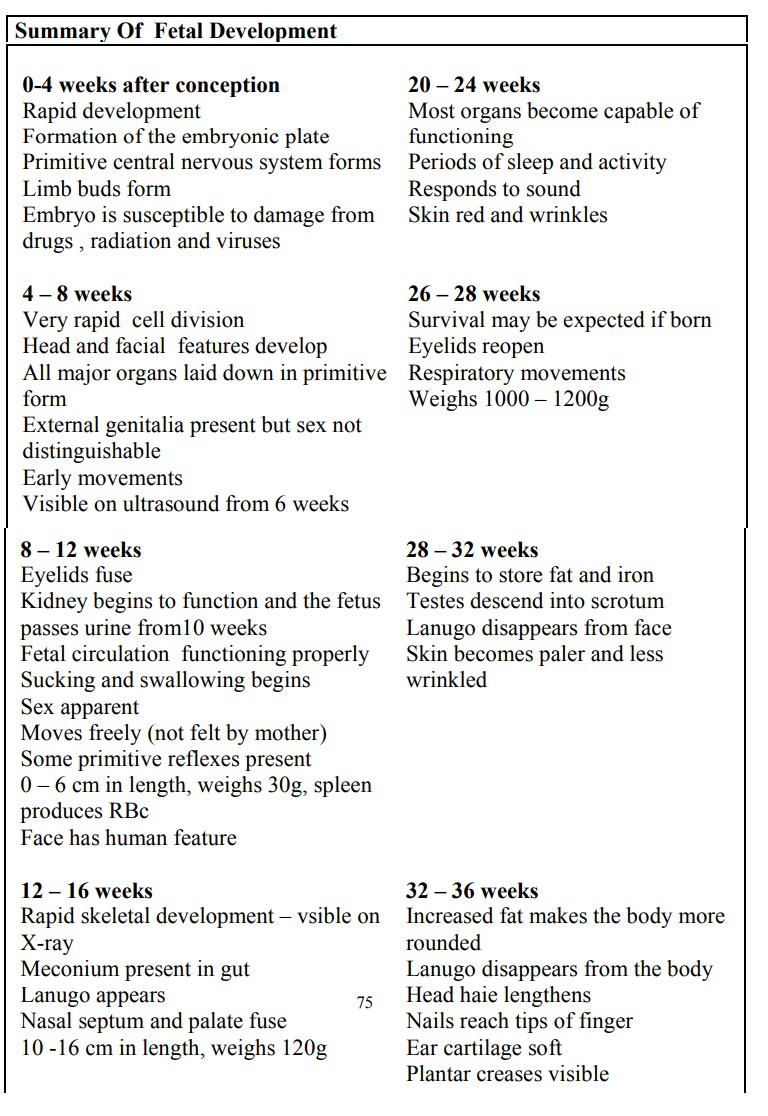Chapter: Maternal and Child Health Nursing : Fetal Development, Placenta Development and Fetal Circulation
Formation of the Decidua
Formation of the Decidua
After
fertilization the endometrium of the uterus is known as the decidua. Oestrogen
increases the size to about 4 times of its pre-gravid thickness, the corpus
Luteum, and produce large amount of progesterone which increases the secretion
of the endometrial glands and increases the blood vessels. So it makes the
endometrium to be softer, spongy and vascular for the fertilized ovum to embed
and nourishes itself. The decidua is transformed into 3 layers.
1.
The Basal layer (Basement): This lies immediately
above the myometrium. It remains unchanged in itself but regenerate the new
endometrium after delivery.
2.
The functional layer (cavernous layer): it consists
of tortuous glands rich in secretions. The stoma cells are enlarged in what is
known as the decidua reaction which provides defense against excessive invasion
by the syncytiotrophoblast and limit it to this spongy layer. It provides
anchor for the placenta and allows it to have access to nutrition and 0xygen.
It is the functioning layer.
3.
The compact layer it covers the surface of the
decidua and composed of closely packed stoma cells, polygonal in shape and it
contains necks of glands.
The
blastocyst forms a small nodule in the decidua which bulges out into the
uterine cavity progressively as it continues to enlarge and divides the decidua
into three areas.
1.
Decidua Basalis: This is the area of the decidua
underneath the developing ovum.
2.
Decidua capsularis: the area which covers the ovum.
3.
Decidua
vera (Perietal) (True
Decidua): This lies
in the remainder of the uterine
cavity.
As
development continues the ovum grows and completely fill up the uterine cavity,
at about the 12th week the decidua capsularis comes in contact with
the decidua vera, it fuses with it and degenerates.

Related Topics